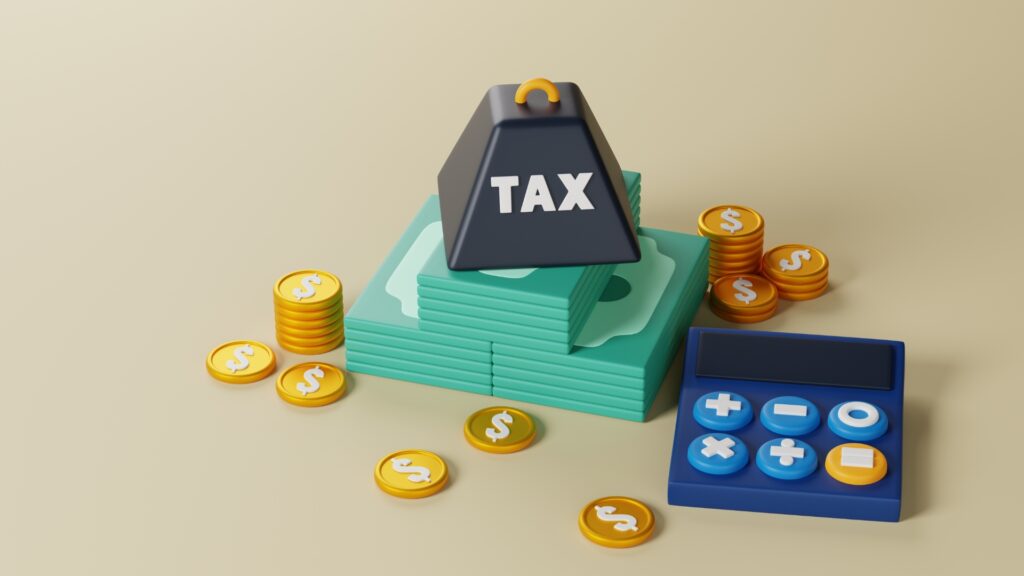Understanding NFT Tax Basics
When it comes to NFTs, the IRS doesn’t consider them currency. Instead, they fall under the category of property just like real estate or stocks. That classification significantly impacts how profits and transactions are taxed.
NFTs Are Taxed as Property
NFTs are not treated like cash or crypto for tax purposes
Every time you sell, trade, or dispose of an NFT, it triggers a tax event
The IRS expects gains (or losses) to be reported, even if the transaction is peer to peer or through a decentralized platform
Capital Gains Apply to NFT Sales
Whenever you sell an NFT for more than you paid, that profit is considered a capital gain. The tax you’ll pay depends on how long you held the NFT before selling it.
Short Term Capital Gains: For assets held less than a year, taxed at your ordinary income rate
Long Term Capital Gains: For assets held over 12 months, taxed at reduced rates (typically 0%, 15%, or 20%)
What Counts as a Taxable Event?
Taxable events aren’t limited to straightforward sales. A variety of common NFT transactions can require reporting:
Selling an NFT for cryptocurrency
Trading one NFT for another
Using an NFT as part of a DeFi transaction
Gifting an NFT (if it exceeds a certain value threshold)
Even seemingly minor or peer driven transactions could trigger tax obligations. It’s best to document each action and consult a tax professional to ensure compliance.
Pro Tip: If you’re unsure whether a specific NFT transaction is taxable, treat it as if it is and record the details you can always clarify with your accountant later.
Keeping Clean Records
If you’re buying or selling NFTs, start with this simple rule: document everything. Every purchase and every sale should be logged with the date, price in crypto, wallet address involved, and the USD equivalent at the time of the transaction. This isn’t just good practice it’s your safety net when tax season hits.
Don’t try to manage it all manually. Crypto tax software is your best friend here. Tools like CoinTracker, Koinly, or TokenTax can sync with your wallets and exchanges to automatically track gains, losses, and fair market values. Most also generate IRS ready reports, which saves time and avoids stress.
The IRS is watching more closely now, and digital assets are no longer flying under the radar. Missing or sloppy data can lead to audits or penalties. The more detailed your records, the easier your tax filing and the stronger your defense if the IRS comes knocking.
Minimizing Your NFT Tax Burden Legally
Playing it smart with taxes doesn’t mean bending the rules it means using them to your advantage. The simplest move? Hold your NFTs for over a year before selling. Long term capital gains are usually taxed at a lower rate than short term ones. That little bit of patience can shrink your tax bill significantly.
Then there’s the wash sale concept. While traditional rules don’t always apply to crypto the same way they do to stocks, some tax savvy traders are leveraging similar tactics where it’s legally viable. If you sell at a loss and quickly buy a comparable NFT, you might still lock in that capital loss. But this is a gray area consult a pro before diving in.
You can also minimize your gains by strategically selling off losers. If some NFTs in your wallet tanked in value, selling them can help offset profits from your winners. This move called tax loss harvesting can bring down your overall liability.
Finally, if a piece doesn’t hold investment value but still has cultural or community relevance, consider donating it. Charitable donations of NFTs, when done right, can unlock fair market value tax deductions. As with everything tax related, documentation is key and timing matters.
Being proactive here isn’t just about saving money. It keeps you compliant, sharp, and one step ahead.
The Tax Treatment for NFT Creators vs. Collectors

Not all NFT participants are taxed the same. If you’re a creator minting and selling your own NFTs your income is generally treated as regular earnings, not capital gains. That means it’s taxed at your ordinary income tax rate, and if you’re running this as a business or freelance gig, you’ll likely owe self employment tax too. Creating art on chain doesn’t exempt you from Uncle Sam.
Collectors sit in a different lane. If you’re buying NFTs to hold or flip later, those profits are considered capital gains. The rate depends on how long you held the asset: less than a year is short term (taxed like income), more than a year is long term (usually lower rates). Losses count too you can use them to offset gains and reduce what you owe.
Whether you create or collect, the smarter move is to report with clarity. That means naming your role, tracking details, and using proper forms. Creators may need to file Schedule C for business income; collectors typically use Form 8949 and Schedule D. The IRS is watching crypto more closely now, and NFTs aren’t flying under the radar anymore.
For a full guide on staying compliant, see NFT tax compliance.
Filing NFT Gains: What You Need to Know
NFT transactions aren’t just digital dots they’re taxable events, and the IRS wants its cut. Every time you sell, trade, or dispose of a token, it needs to be logged on IRS Form 8949. From there, totals move to Schedule D, where your gains or losses are tallied. If you receive NFT royalties or staking rewards, those count as income too report them on Schedule 1 (miscellaneous) or Schedule C if it’s part of a business or side hustle.
The fine print matters. You must convert each transaction into U.S. dollars using the fair market value at the time it happened even if your platform doesn’t do this for you.
Unless you’re into spreadsheets and tax code, using a CPA or crypto focused tax software is your smartest move. These tools pull wallet data, calculate gains, and often flag gray areas you might overlook. End of story: the IRS is catching up with Web3, so take reporting seriously.
Staying Ahead of Regulatory Shifts
If you’re earning or trading with NFTs, one thing is clear: the rules are evolving, fast. Tax law in the crypto space especially around NFTs is still a moving target, and updates can hit annually or even mid year. What worked last tax season might not cut it this time. Stay alert.
The IRS has stepped up its game. They’re tracking crypto wallets more aggressively and cracking down on unreported NFT gains. Hidden transactions, casual wallet swaps, even gifting NFTs without logging fair market value these are all risk zones now.
Don’t get caught scrambling. Keep everything. That means transaction receipts, exportable wallet histories, and any blockchain logs that trace the life of your assets. If you’re audited, these are your receipts not just a nice to have, but necessary.
You don’t need to become a tax expert, but you do need to stay current and organized. For a deeper look at keeping compliant, read NFT tax compliance.
Final Note: Stay Proactive About NFT Taxes
Understanding how NFT taxes work isn’t just smart it’s essential. As regulatory focus on digital assets intensifies, the risks of poor recordkeeping or misreporting can cost you significantly.
Why Compliance Matters More Than Ever
Regulatory scrutiny is increasing: The IRS is actively targeting underreported crypto and NFT activity.
Penalties can be steep: Failing to declare taxable NFT transactions could lead to fines or audits.
Digital paper trails exist: Blockchain activity is transparent tax authorities now have tools to trace irregularities.
Position Yourself for Success
File accurately: Use trusted tax software or a CPA who understands crypto compliance.
Keep organized: Maintain clear documentation of each NFT transaction.
Stay informed: Continue updating your knowledge as laws evolve.
While the NFT space continues to innovate, one thing remains constant: taxes. By taking a proactive approach to your reporting and strategy, you protect both your profits and your peace of mind.

 Is the innovative founder of The Digi Chain Exchange, a comprehensive platform dedicated to educating and empowering individuals in the world of digital finance. With a strong academic background in Finance and Computer Science from the University of Michigan, Scotterrin began her career in traditional finance before shifting her focus to blockchain technology and cryptocurrencies. An early adopter of Bitcoin and Ethereum, Adaha’s deep understanding of the transformative potential of blockchain led her to create The Digi Chain Exchange, which has since become a trusted resource for crypto news, market trends, and investment strategies.
Is the innovative founder of The Digi Chain Exchange, a comprehensive platform dedicated to educating and empowering individuals in the world of digital finance. With a strong academic background in Finance and Computer Science from the University of Michigan, Scotterrin began her career in traditional finance before shifting her focus to blockchain technology and cryptocurrencies. An early adopter of Bitcoin and Ethereum, Adaha’s deep understanding of the transformative potential of blockchain led her to create The Digi Chain Exchange, which has since become a trusted resource for crypto news, market trends, and investment strategies.

